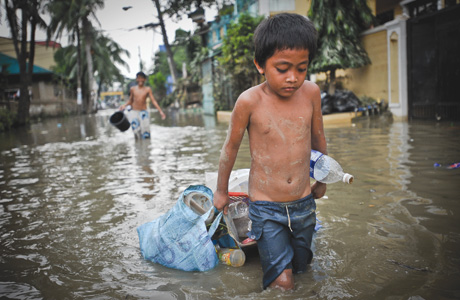 Yesterday I reblogged a great piece on organizing against GMO agriculture in Hawaii. My friend Dean Saranillio just sent me a link to an interview with Vandana Shiva that fills out more of the context for the anti-GMO struggle in Hawaii.
Yesterday I reblogged a great piece on organizing against GMO agriculture in Hawaii. My friend Dean Saranillio just sent me a link to an interview with Vandana Shiva that fills out more of the context for the anti-GMO struggle in Hawaii.
In this interview, Shiva, a brilliant environmental thinker and founder of the Vavdanya seed-saving organization, makes some powerful connections between the US military’s use of the Hawaiian islands as a testing ground for toxic munitions – including depleted uranium weapons – and the presence of GMO corporations like Monsanto, Syngenta, and BASF.
Shiva argues that these companies, which emerged from the war industry by producing toxic defoliants such as Agent Orange (used widely in the US war in Vietnam), have a history of turning military chemicals into agricultural products. The fate of corporations such as Monsanto and Dow is, in other words, linked not just to the US military but also to the Green Revolution and its high-intensity forms of petro-agriculture.
Over the last few decades, these same corporations have begun peddling GMO crops which force farmers to buy seeds annually through [seed] “terminator” technology, and which has unknown toxic effects on plant, animal, and human life.
It seems that Hawaii is ground zero for experimentation with these militarized biotechnologies. Here’s a link to a good film that offers more background on GMOs in Hawaii, and on the resistance movement to the poisoning of paradise:
[youtube=http://www.youtube.com/watch?v=uZgrOFjhzdg&list=PLFA36D82AFF7762B3&index=1]

